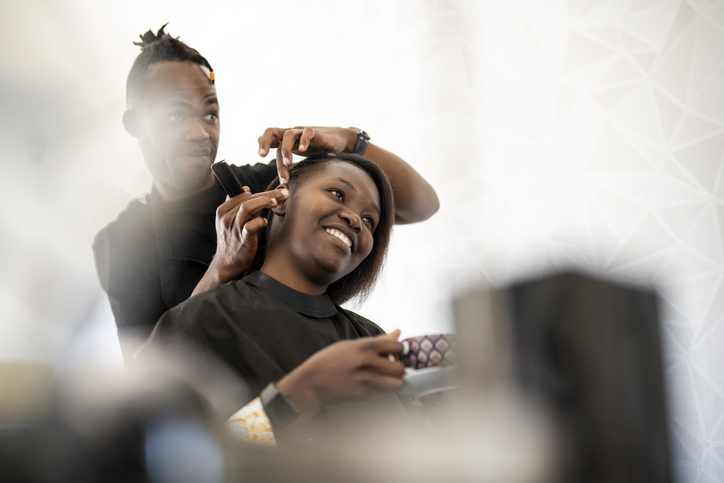Creamy Crack Be Gone: FDA Proposes To Ban Relaxers But Watch How Companies Advertised To Black Women For Years

Source: PixelCatchers / Getty
That “creamy crack” could be leaving the shelves according to a new proposal set forth by the U.S. Food and Drug Administration (FDA). The proposal would ban relaxers, which have been used primarily amongst Black women within the cosmetic industry for many years. Read more on why the FDA is proposing this change now and check out commercials with the harmful products, which were directly advertised to Black women.
The FDA is shaking up the beauty industry with a proposed ban on chemical hair-straightening products that are filled with health-compromising chemicals such as formaldehyde, which is used in glues and resins, dyes, textiles, disinfectants, building materials, automobile parts, embalming, and laboratories. Reports came out publicly in May sharing the links between straightening products and health risks like uterine, breat and ovarian cancer.
The FDA’s proposed rule would ban products consisting of chemicals like formaldehyde and glycol. Studies show that women who frequently use these chemicals have a 4 percent risk of developing uterine cancer by 70 years old. According to recent studies, 50 percent of the products advertised to Black women contain these chemicals. Some of the products mentioned are Motions, Dark & Lovely, Olive Oil Relaxer, and Organic Root Stimulator all contain the chemical that’s also used as an embalming agent when treating dead bodies.
If the FDA’s proposed rule is issued, the FDA will receive public comments on it, and after reviewing those comments, the agency will decide whether further action is needed, spokesperson Courtney Rhodes said Friday (Oct. 13).
“Based on the comments, we might decide to end the rulemaking process, to issue a new proposed rule, or to issue a final rule. If we decide to issue a final rule, we publish the final rule in the Federal Register,” the FDA posted a statement on its website.
The urgency of this proposal gained substantial backing from Representatives Ayanna Pressley and Shontel Brown, who, in March, demanded a laborious inquiry into these products’ safety. They herald the ban as a necessary step towards safeguarding public health, emphasizing its deep impact on communities affected by systemic racism and biased beauty standards.
The health dangers associated with chemical relaxers have spread throughout Black communities for decades, prompting Black women to take action. As natural hair saw a trend, Forbes and market research firm Kline & Co. report a decade-long decline in relaxer sales, plummeting from $71 million in 2011 to $30 million in 2021, including a 25 percent drop in 2020 alone. Still, protection against discrimination based on natural textures and hairstyles like locs and braids is still only legal in 23 states.
All the products listed above have been banned in other countries for years. None of these companies are Black-owned, but primarily target the Black demographic. These beauty companies used Black celebrities like Kelly Rowland and Tia Shipman to sell their products to other women.
Check out commercials by these beauty products below:
1. Motions
Source:YouTube
2. Dark & Lovely
Source:YouTube
3. ORS Olive Oil
Source:YouTube
4. Organic Root Stimulator
Source:YouTube
5. Dark & Lovely (1986)
Source:YouTube
The post Creamy Crack Be Gone: FDA Proposes To Ban Relaxers But Watch How Companies Advertised To Black Women For Years appeared first on Black America Web.


